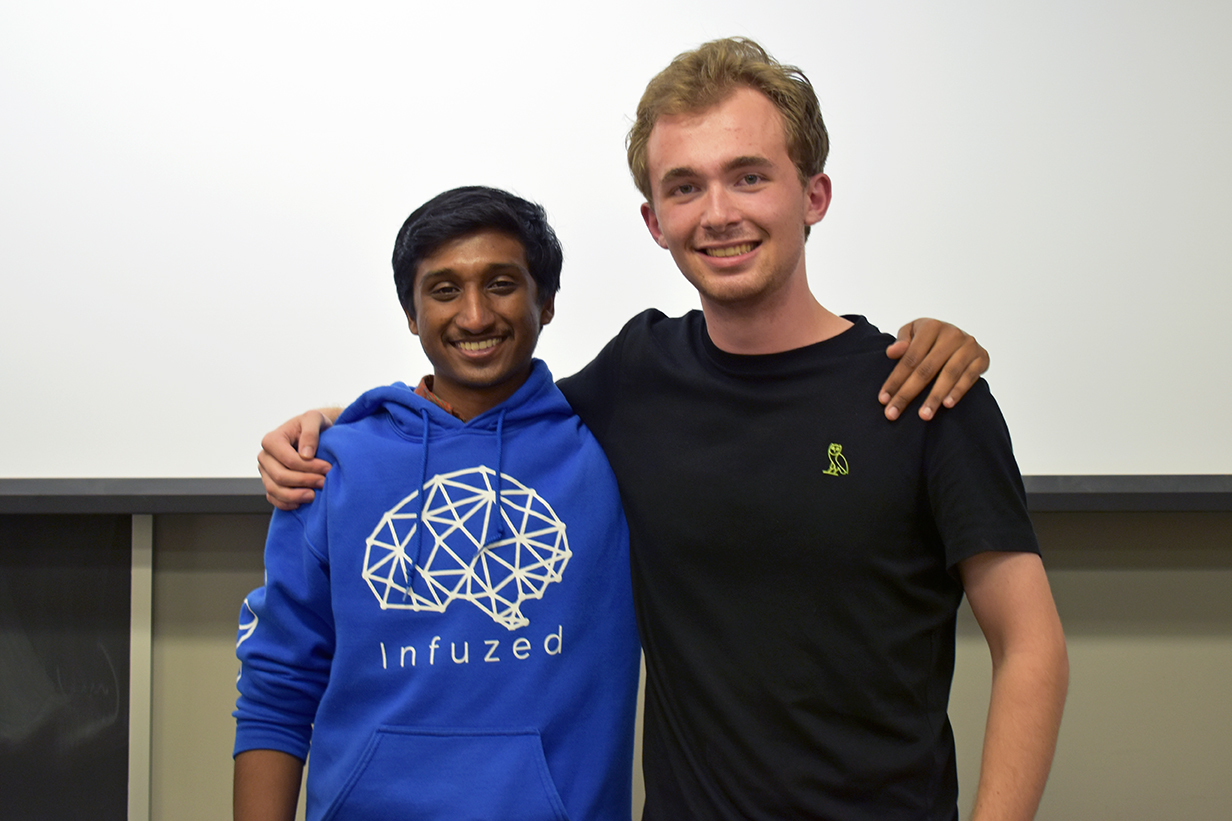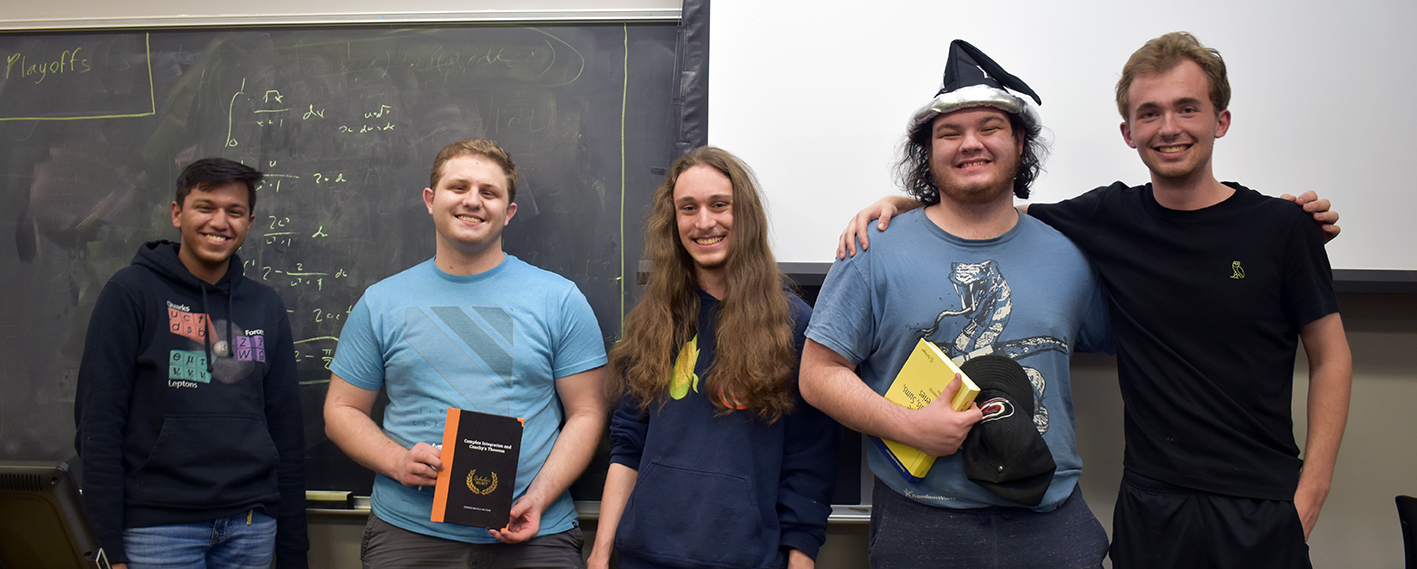
David Sieg ’25, a native of Winston-Salem, is studying mathematics at NC State’s College of Sciences. With aspirations of attending graduate school, his first major project in Raleigh was to bring together math enthusiasts from all disciplines for an exciting competition, the Spring 2022 Integration Bee.
An Integration Bee, named in the style of the familiar grade school spelling bee, is a calculus-based problem solving competition. The tested skill, integration, is a method of finding the exact area under a complex curve. Anyone who has taken introductory calculus will remember the concept, and so in this competition, hopefuls of many experience levels have the chance to win big.
Before they can compete in the Bee, all registrants first take a qualifying exam: twenty minutes, twenty integrals. The top eight scorers make the playoffs — a single-elimination tournament. In each round, two competitors walk up to a chalkboard and are given a problem. To avoid elimination, they must solve it before their opponent right in front of an eager crowd. The winner moves into the next round.
Planning and executing the event’s logistics turned out to be much more work than expected, so Sieg enlisted the help of friends including Kavin Govindarajan ’24, an aerospace engineering and applied mathematics student, to divide and conquer the preparation and ensure the smooth execution of the event.

“It was a bit of luck that David and I happened to be in the Park Commons at the same time that day. While discussing our respective math classes back in September, David shared his idea for the integration bee. I was immediately on board, excited to help him bring competitive mathematics to NC State,” Govindarajan shared. “Overall, the first integration bee was a great success, and I’m looking forward to working with David to expand on this event moving forward!”
Thirty registrants from ten different academic departments arrived for the qualifying round. From statistics, to computer science, to marine, earth, and atmospheric sciences, everybody tried their hand at the competition.
“There are other math competitions. For example, the Putnam Competition,” remarked Sieg. “But even math majors at the highest skill level will often score zero out of 120 points. I prefer something that will bring in a diverse range of competitors, spectators, and overall something that is more fast-paced and suspenseful. An Integration Bee is the perfect event for that.”
Multiplying the excitement, the playoffs garnered the attention of a sizable audience who showed up just to watch the math. For the eight quarterfinalists, this meant the pressure was on. “These [integration problems] are so much easier to do when there aren’t twenty-five people watching you,” declared one contender.
While the competitors did their best to keep calm, the audience was on the edge of their seats. “Everyone in the audience was really engaged with the matches,” said a spectator. “Quite a few of us were even trying to work the problems out on our own.”
Four semifinalists, Arvin Kushwaha, Everett Meekins, Etienne Phillips, and Stephen Donovan, battled it out for the title of Grand Integrator and prizes funded by the NC State Math Department. In the end, Donovan, a fourth-year student in computer science, emerged victorious.

The excitement didn’t end with the competition. Afterward, participants flocked to the undergraduate math lounge for an afterparty. Everybody celebrated, taught each other different integration strategies, and solved more problems together whilst getting to know one another. “That was the most rewarding part of the experience for me: watching everybody bond,” Sieg reflected.
For Sieg, the NC State Integration Bee is a dream come true. As a high school student, he avidly watched recordings of the Massachusetts Institute of Technology’s Integration Bee, hoping that his future university would have one. When NC State did not, he endeavored to build one.
Sieg is confident that the NC State Integration Bee will return bigger and better in the 2022-2023 academic year.
“I’ve had plenty of people come up to me and ask me to host another next year–it’s happening,” Sieg pronounced. “In addition to Kavin, I have a team of three other people who have expressed interest in volunteering to help next year. That way, the event can only build. I’m excited for the Bee’s growth and hope it becomes an NC State staple for creating healthy competition, friendship, and excitement for math across academic departments.”